On this #FindingAidFriday, we are highlighting the recently processed papers of Jim Cohn, poet, writer, recording artist, editor, publisher, and curator of the online Museum of American Poetics. The Jim Cohn Papers (1953-2019) were donated in 2019 and encompass approximately fifteen linear feet of material documenting Cohn’s work across his several vocations through correspondence, research files and drafts, interviews by and of Cohn, published essays and poetry, journals, photographs, and audiovisual materials.
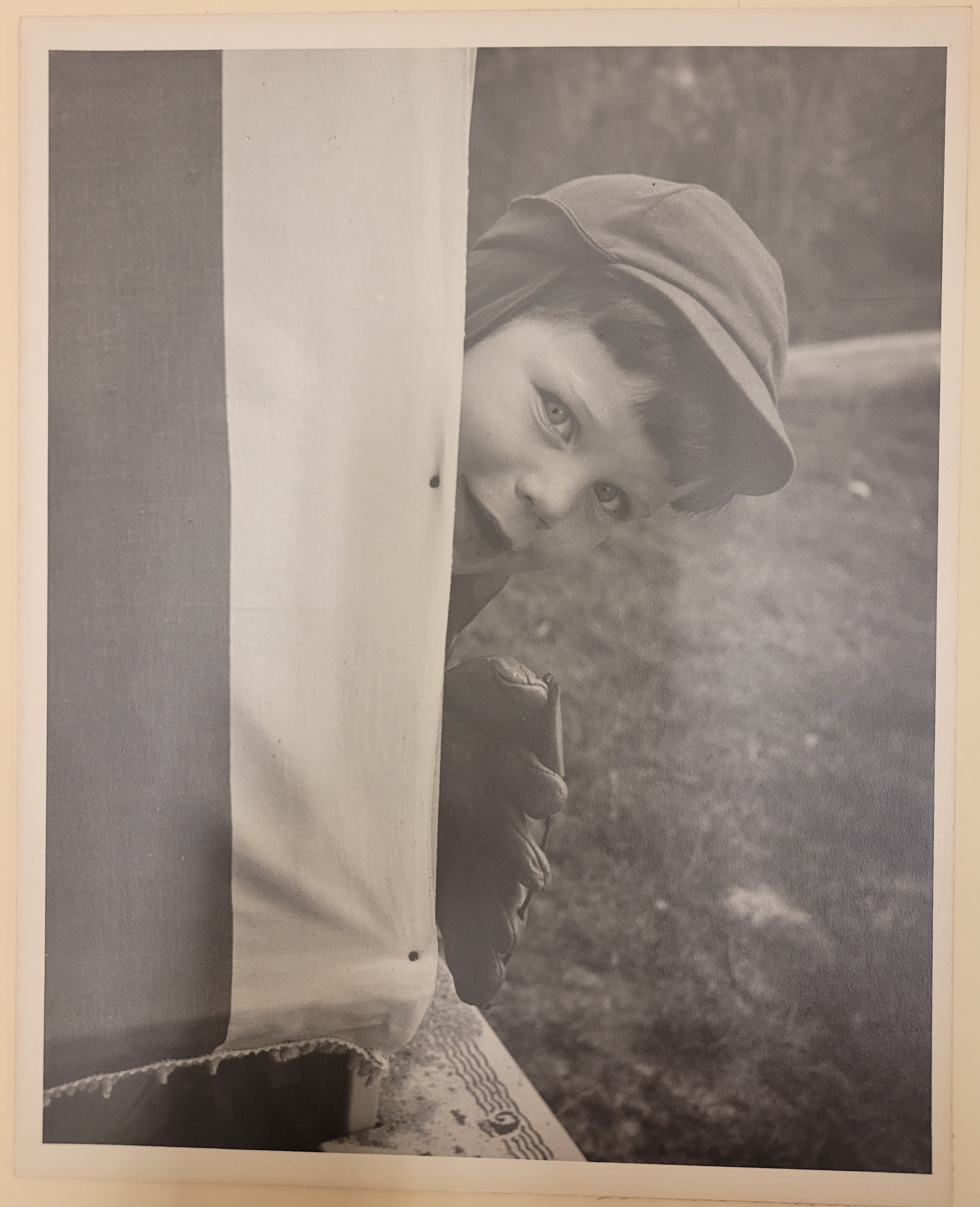
Childhood photograph of Jim Cohn. Jim Cohn Papers, Box 18, folder 1. University of Michigan Library, Special Collections Research Center.
Born in Highland Park, Illinois, and raised in Cleveland, Ohio, Cohn studied at Hebrew University in Jerusalem (1974-1975), graduated with a B.A. in English from the University of Colorado at Boulder (1976), and received a Certificate of Poetics from Naropa University’s Jack Kerouac School of Disembodied Poetics (1980), the same year he published his first volume of poetry, Gandy (1980). Cohn’s experiences at Naropa, in particular as a teaching assistant to Allen Ginsberg, were foundational to his development as a poet. In a 2004 interview with Marc Christian, Cohn described the experience of working closely with Ginsberg as “[releasing] me from the suppression of my poetic dreams.”[1]
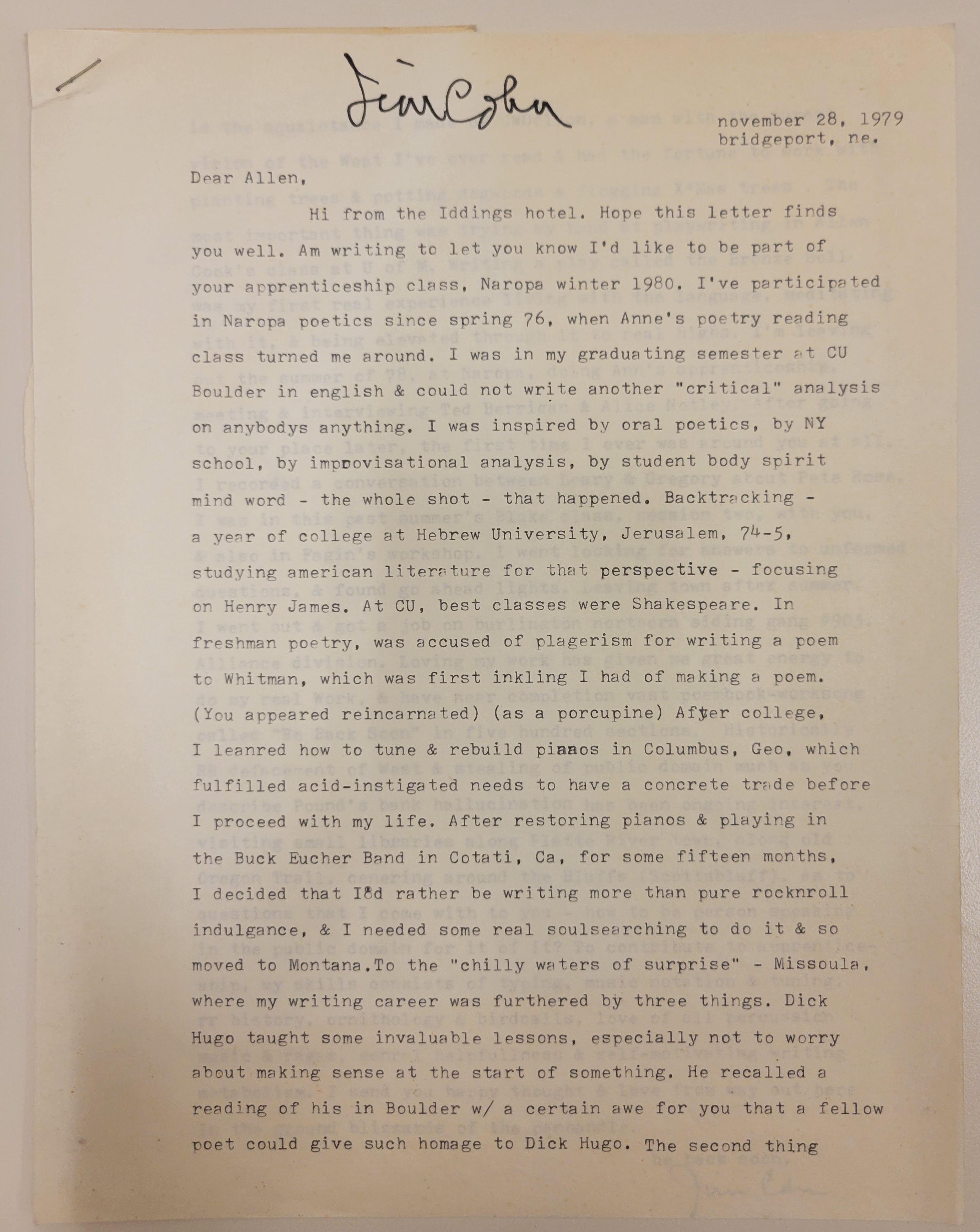
Letter from Jim Cohn to Allen Ginsberg, Nov. 28, 1979. Jim Cohn Papers, Box 4, folder 6. University of Michigan Library, Special Collections Research Center.
Cohn’s interest and work in the area of sign language poetics is also notable. One piece included in the Papers is an essay written as part of an independent study project translating poems from English to ASL in 1981-82. Cohn writes “A sign is a structural transparency of the world. It is less detached than the arbitrary construction for the world implied by words….Sign economizes perception, limits experience into what forms the mind’s eye sees.” Graduating in 1986 from the University of Rochester and the National Technical Institute for the Deaf (NTID) with an M.S.E. in English in Deaf Education, he coordinated the first National Deaf Poetry Conference in the United States in 1987.
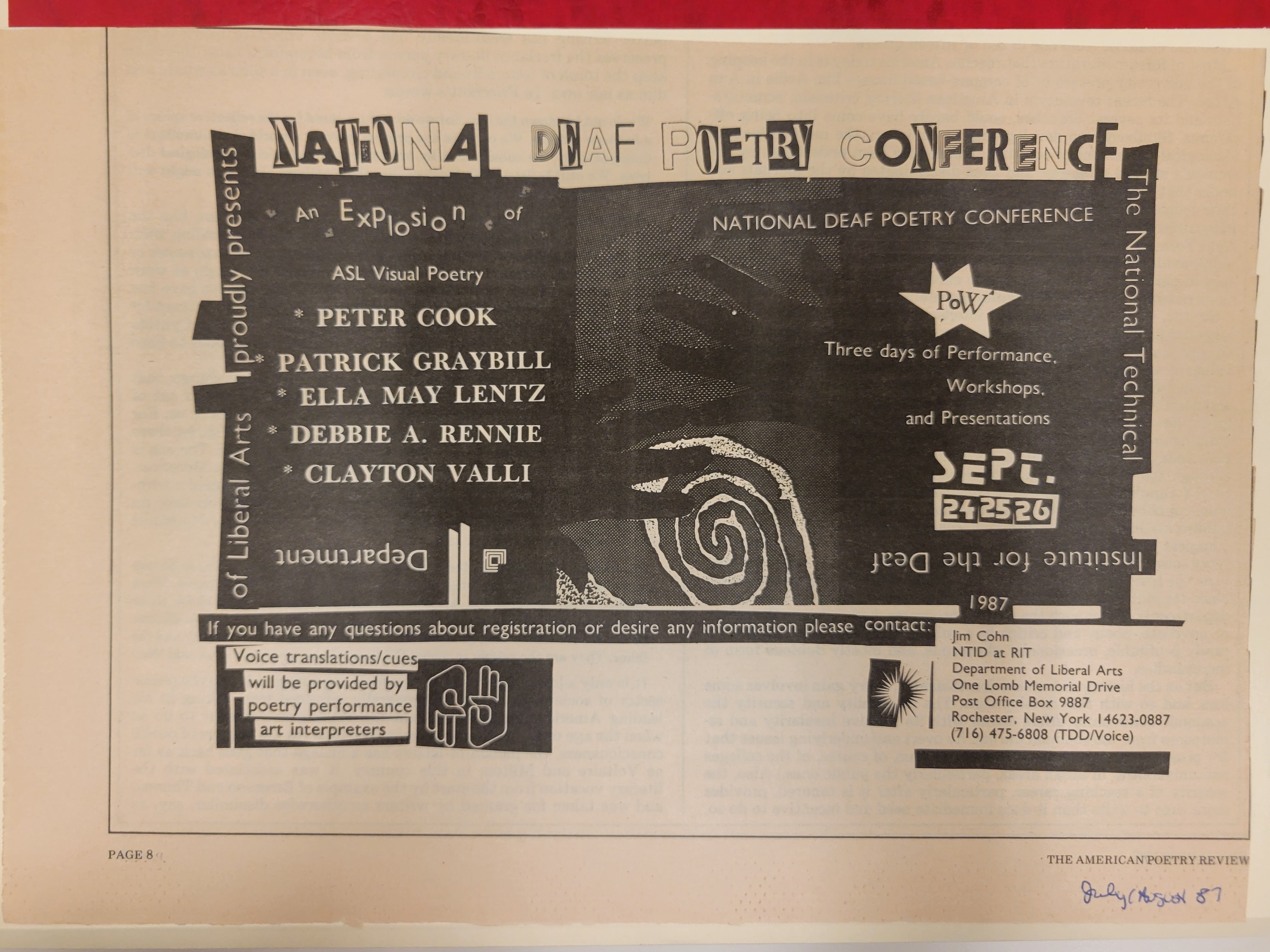
Advertisement for the National Deaf Poetry Conference in The American Poetry Review, July 1987. Jim Cohn Papers, Box 6, folder 8. University of Michigan Library, Special Collections Research Center.
The audiovisual series of Cohn’s Papers includes CD and tape recordings of Cohn’s spoken word music poetry, a focus of his creative work in the 1990s through the mid-2010s. Antenna (2000) was Cohn’s second solo recording. Primarily a jazz and spoken word CD, the work contains a 40-minute improvisation of Cohn’s long poem, “Treasures for Heaven.” These materials have not yet been reformatted, but are listed on the finding aid, and interested researchers may contact the Special Collections Research Center. Paper documents related to the AV materials are located in the “Audio Files” series.
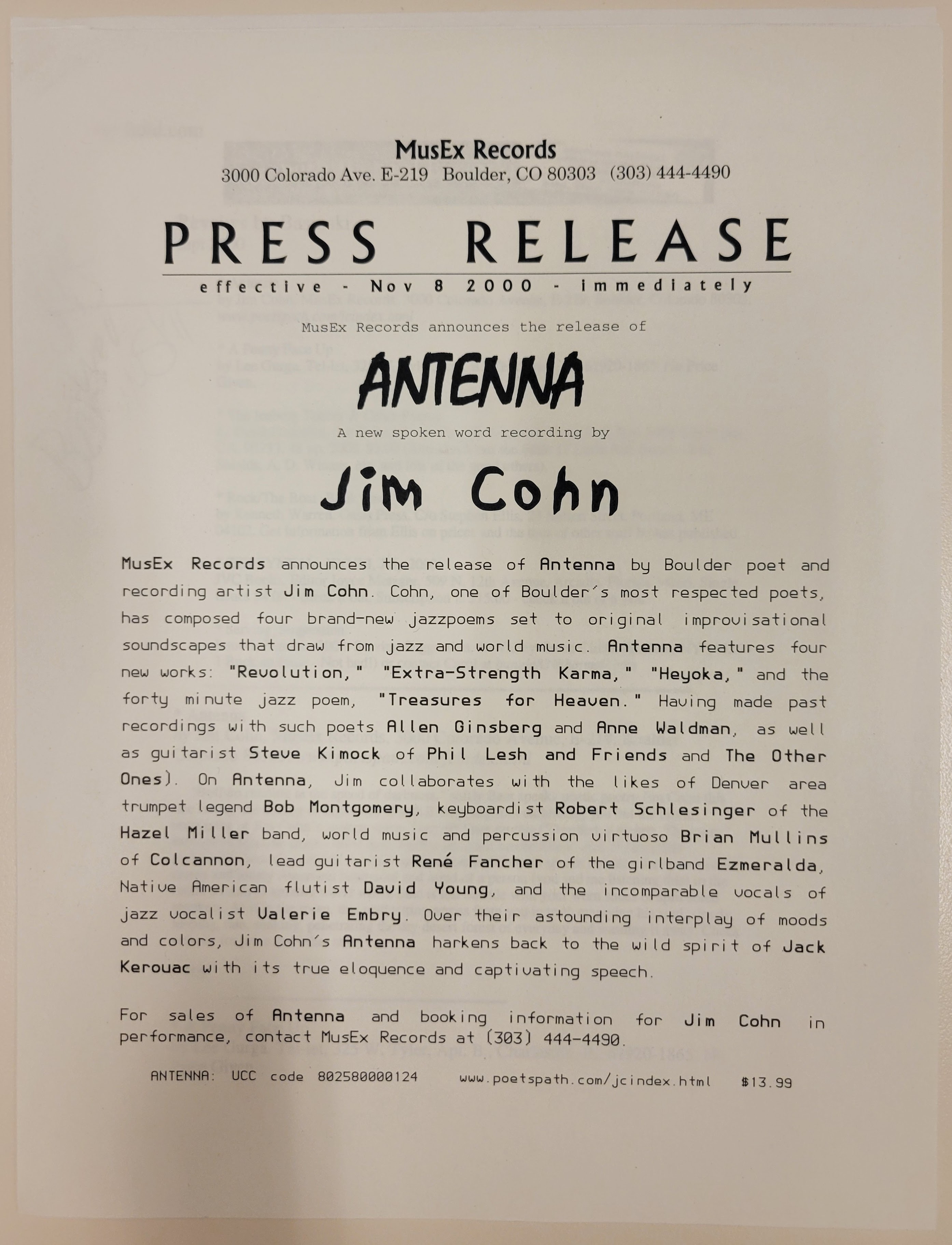
Press release for Antenna (2000). Jim Cohn Papers, Box 7, folder 11. University of Michigan Library, Special Collections Research Center.
Journals and manuscripts of Cohn’s poetry and prose projects are included in the archival collection, as are papers related to book publication, but some published material was separated for future cataloging and is thus not reflected in the finding aid. Once cataloged, this material will be accessible through the library catalog. Already available are numerous issues of Napalm Health Spa, an annual poetry journal published by Cohn. The collection also includes fine art projects, including hand-made paper sheets incorporating various materials, documenting Cohn’s artistry in many formats.
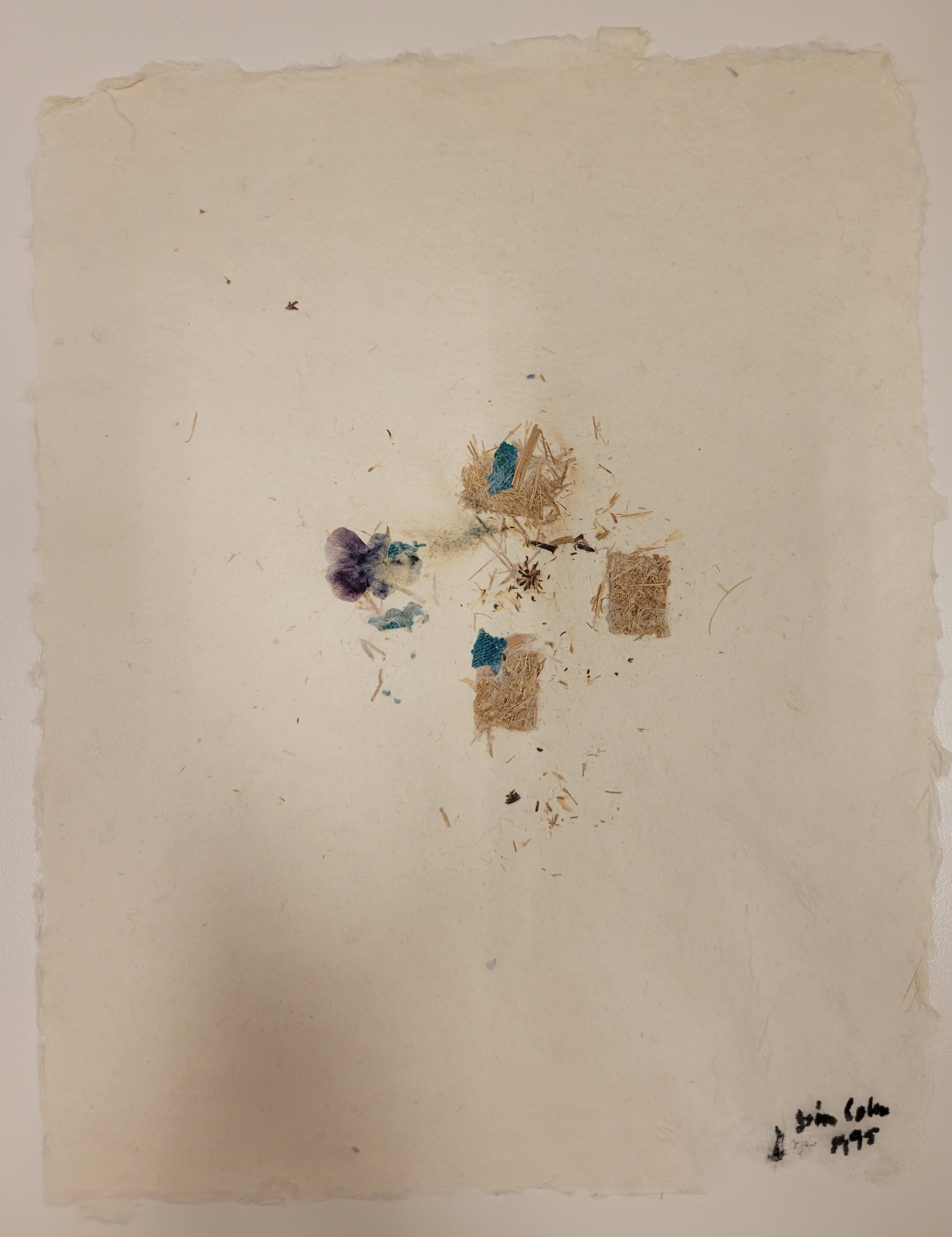
Hand-made paper sheets: Grass, flowers, and fabric, 1995. Jim Cohn Papers, Box 7, folder 11. University of Michigan Library, Special Collections Research Center.
The Special Collections Research Center is also home to the papers of other Postbeat poets with close ties to Jim Cohn: David Cope, Finvola Drury, and Anne Waldman. Looking at the “Correspondence” series of the Cope, Waldman, and Cohn papers, in particular, reveals not only their association with each other, but significant points of overlap in their wider circles. The collocation of these poets’ papers offers unique research opportunities that we hope to see explored in the coming years.
In order to access the Jim Cohn Papers, please follow the instructions on the Special Collections Research Center’s website. Researchers are invited to create an online user account and then use the finding aid to request specific boxes and schedule an appointment. For further assistance or other questions, please contact special.collections@umich.edu.
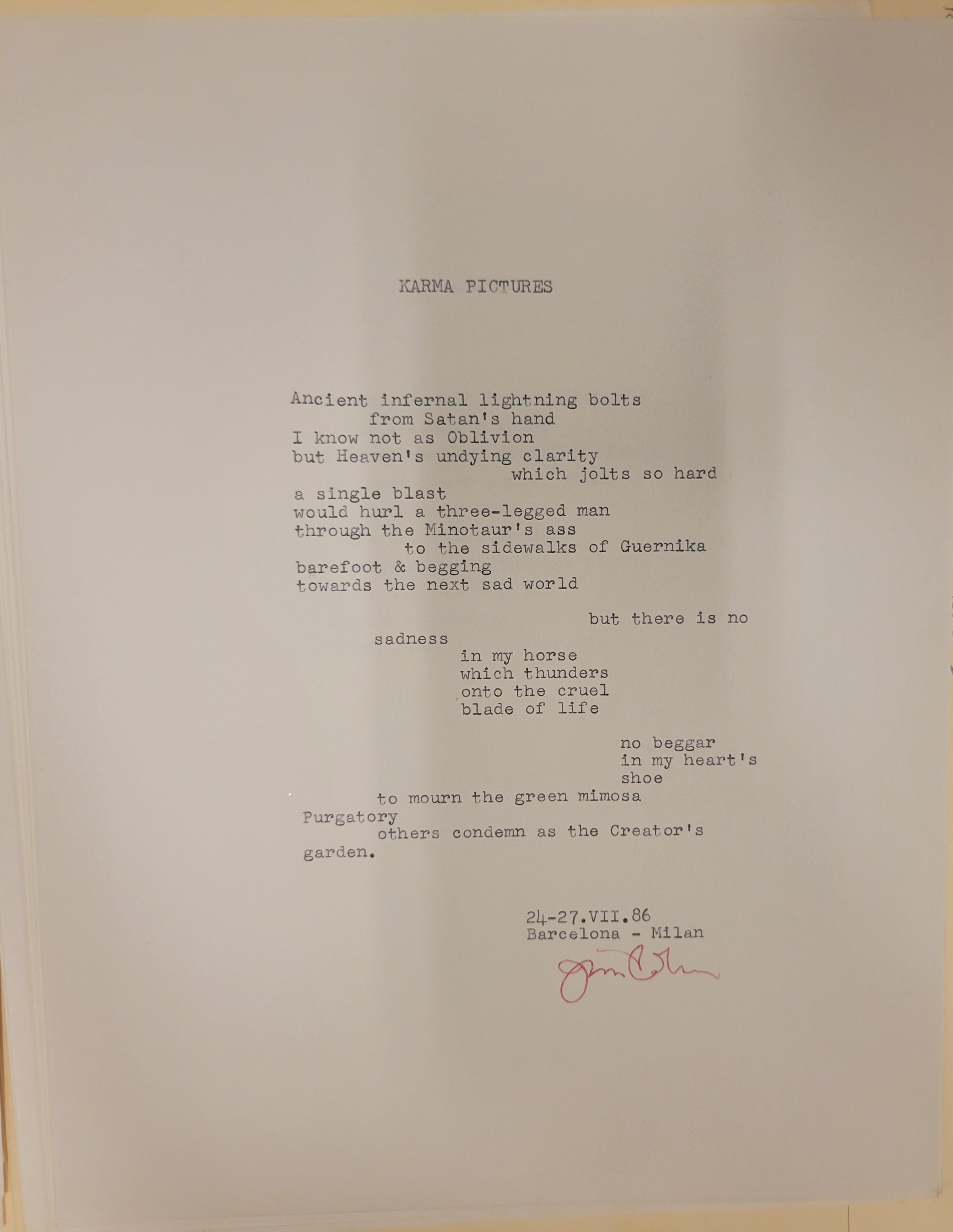
“Karma Pictures” from manuscript of Prairie Falcon (1988). Jim Cohn Papers, Box 16, folder 3. University of Michigan Library, Special Collections Research Center.
[1] Jim Cohn. “Is the Web Beat?”: Interview by Marc Christian. In Sutras & Bardos: Essays & Interviews on Allen Ginsberg, the Kerouac School, Anne Waldman, Postbeat Poets & the New Demotics (Museum of American Poetics Publications, 2011).